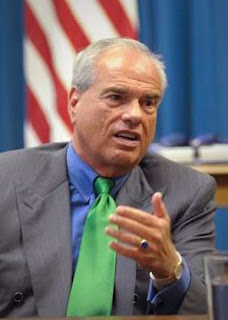Home
Energy Efficiency
Renewable Energy
Mexico's Energy Market Reforms Present Golden Opportunity for California
Mexico's Energy Market Reforms Present Golden Opportunity for California
By Robert B. Weisenmiller and Michael Rossi
Robert B. Weisenmiller Michael Rossi
Coming on the heels of a successful trade mission to Mexico during which Governor Jerry Brown signed cooperative memorandums of understanding on trade and investment, clean energy, and climate change with top Mexican officials, Mexico has taken an important step toward reforming its energy sector to make it more open to foreign investment and market-driven innovation.
On August 11, Mexican President Enrique Peña Nieto signed legislation that will facilitate private investment and new development in its electricity and oil-and-gas sectors. For example, its electric utility (Comisión Federal de Electricidad or CFE) that has owned and operated the entire electricity market-from generation to transmission and distribution to grid management-will start operating more like California's electric utilities. These energy reforms significantly alter the structure of Mexico's energy industry and it comes as no surprise that Mexico has adopted these reforms.
California's innovative policies send a clear signal, provide incentives and generate market demand. That is a proven economic advantage of California being a climate and energy leader. We set a goal to reduce emissions to 1990 levels by 2020, and to 80 percent of 1990 levels by 2050 and are using energy efficiency, renewable energy and carbon pricing programs to meet that goal. We set a goal of having 33 percent of our energy come from renewable sources by 2020.
Furthermore, clean energy companies within our borders that are transforming our energy industry are in an ideal position to help Mexico implement its energy sector reforms as Mexico simultaneously seeks to meet its national targets to reduce emissions to half of 2000 levels by the year 2050 and generate a third of its electricity from renewable sources by 2024. By doing so, California and U.S. energy companies will create more jobs and tax revenue on both sides of the border and build an even stronger economic partnership.
Last week, Governor Brown welcomed President Nieto to California to expand collaboration between California and Mexico on climate change, energy and trade. Over the coming months, officials in California and Mexico will initiate efforts to take action on the areas of cooperation identified in the MOUs and explore ways to further expand trade and investment, including in the energy sector.
As Governor Brown recently pointed out, California's and Mexico's "roots go back even deeper than the Pilgrim fathers." This joint history and geography have facilitated economic and environmental collaboration for more than a century. Mexico is now California's largest export market, and two-way trade in goods between Mexico and California totaled over $60.1 billion in 2013 - one of the largest two-way trade relationships between Mexico and a U.S. State. The energy reforms in Mexico allow for this collaboration to continue and result in greater economic growth and the achievement of climate and clean energy goals on both sides of the border.




